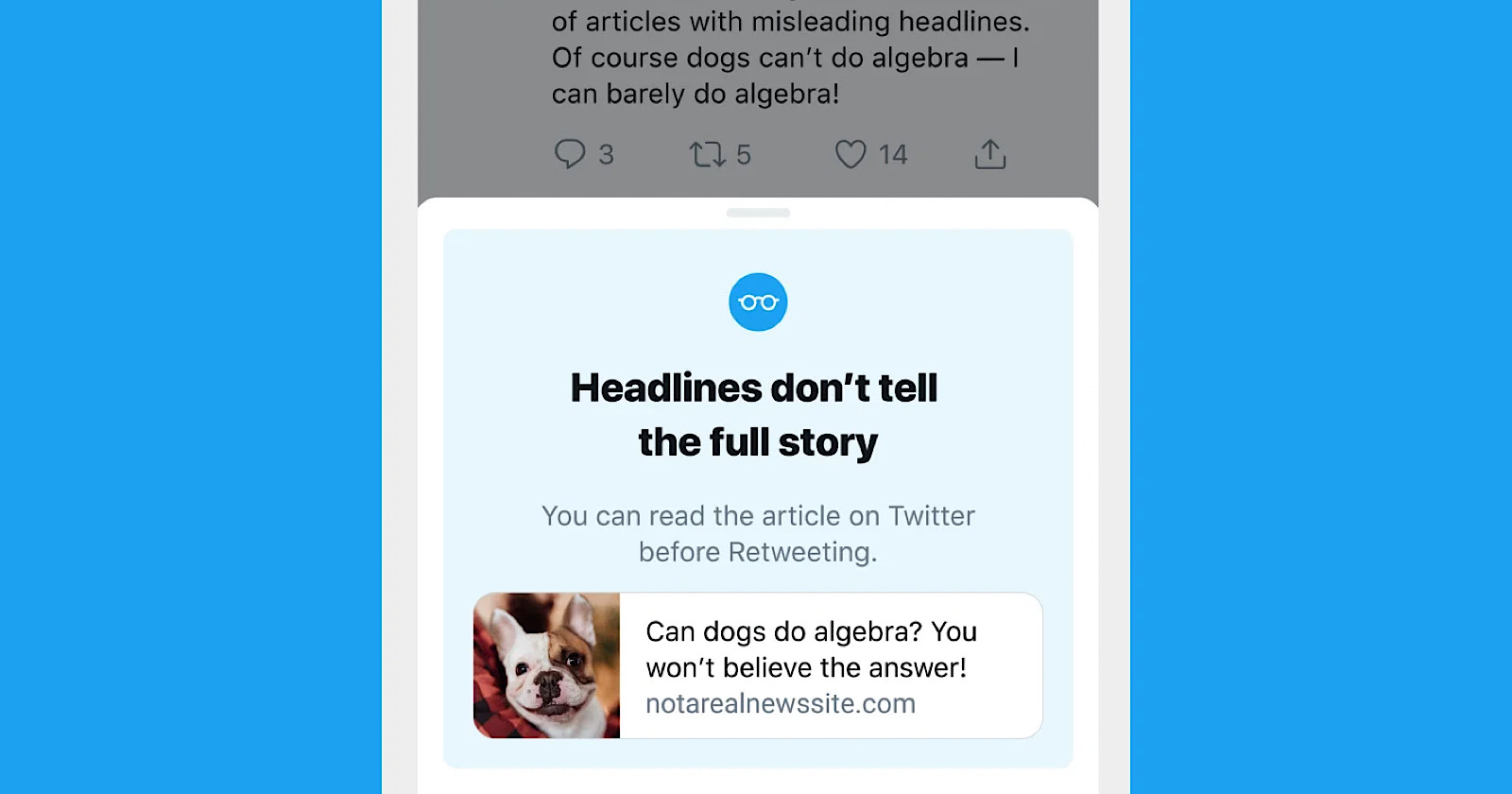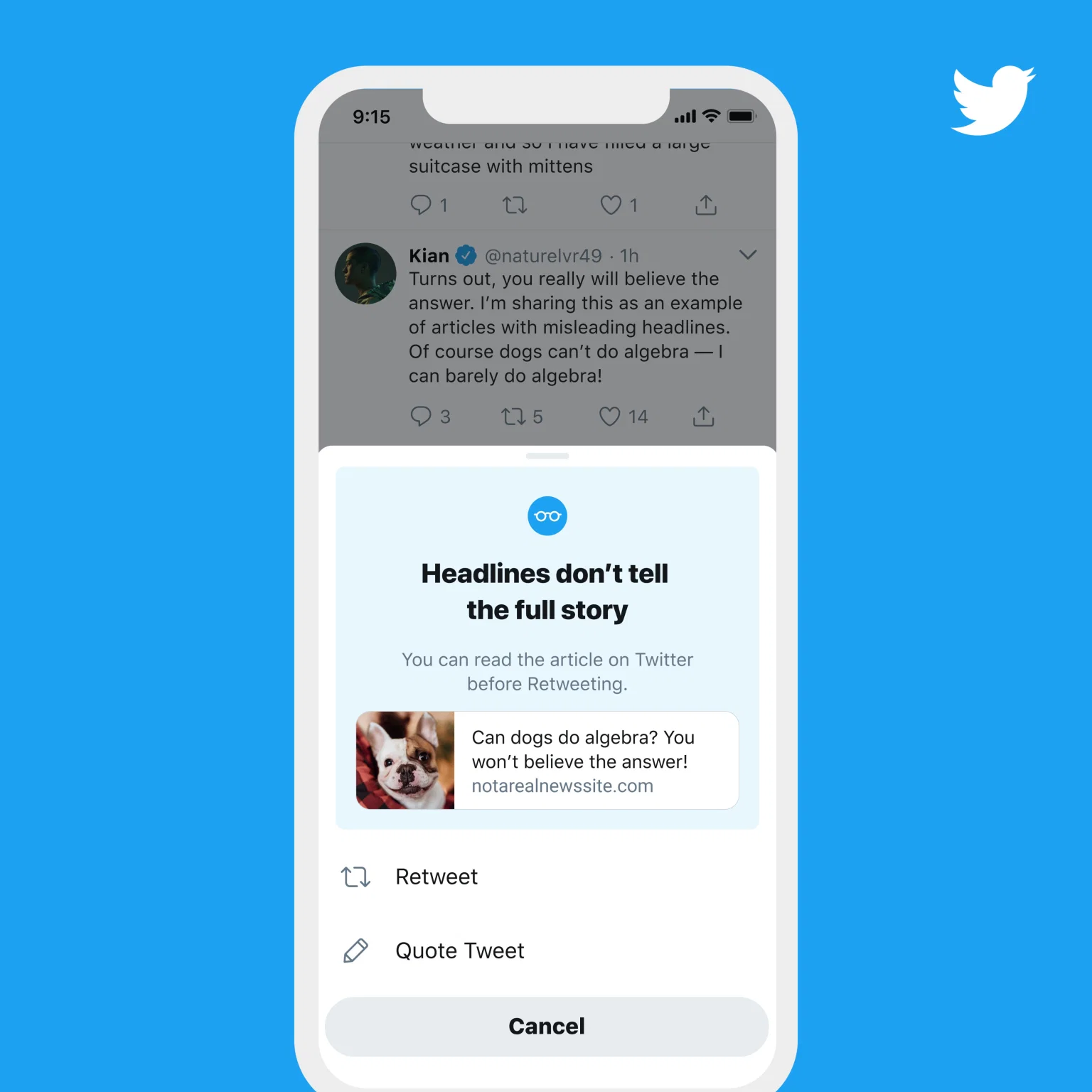Twitter says nudging users to read articles before retweeting them is working. Now, more users will be prompted to do so going forward.
In June, Twitter began testing a feature which prompts users to reconsider retweeting links they haven’t clicked on.
“Headlines don’t tell the full story,” the prompt begins. “You can read the full article on Twitter before retweeting.”
As part of the test, users who went to retweet a link before clicking on it were shown the following pop up:
As a result of being shown this pop up, users opened articles 40% more than they did without it.
Further, there was a 33% increase in users clicking on an article before retweeting it.
That means some users clicked on an article and eventually changed their mind about retweeted it.
📰 More reading – people open articles 40% more often after seeing the prompt
📰 More informed Tweeting – people opening articles before RTing increased by 33%
📰 Some people didn’t end up RTing after opening the article – which is fine! Some Tweets are
best left in drafts 😏— Twitter Comms (@TwitterComms) September 24, 2020
That’s exactly what the prompt is designed for; encouraging users to make more informed decisions about sharing content.
With this feature working as intended, Twitter says it plans on rolling it out to everyone globally.
What’s next:
🔜 Making the prompt smaller after you’ve seen it once, because we get that you get it
🔜Working on bringing these prompts to everyone globally soon 👀 pic.twitter.com/08WygQi06G— Twitter Comms (@TwitterComms) September 24, 2020
Given how these prompts lead to more clicks it sounds like they’re a good thing for publishers.
Or at least they stand to benefit publishers putting out high quality content.
More clicks and more traffic are generally positive things, but neither are sustainable if users are being driven to poor quality content.
This feature has the potential to expose bad publishers as much as it can reward the good ones.
Content containing spam, clickbait headlines, and harmful/incorrect information has less of a chance to go viral if users are prompted to think twice before sharing.
Time will tell if this feature has a measurable impact on the amount of misinformation being spread on Twitter.
It’s worth noting, at the time this feature first went into testing, it only applied to news publishers.
Since Twitter hasn’t said any different, I can only assume it affects links to news outlets only.
Hey Rachel, for this experiment, the prompts apply to links to news outlet domains.
— Twitter Support (@TwitterSupport) June 11, 2020
Related: Twitter Will Check if Articles Are Read Before Sharing





